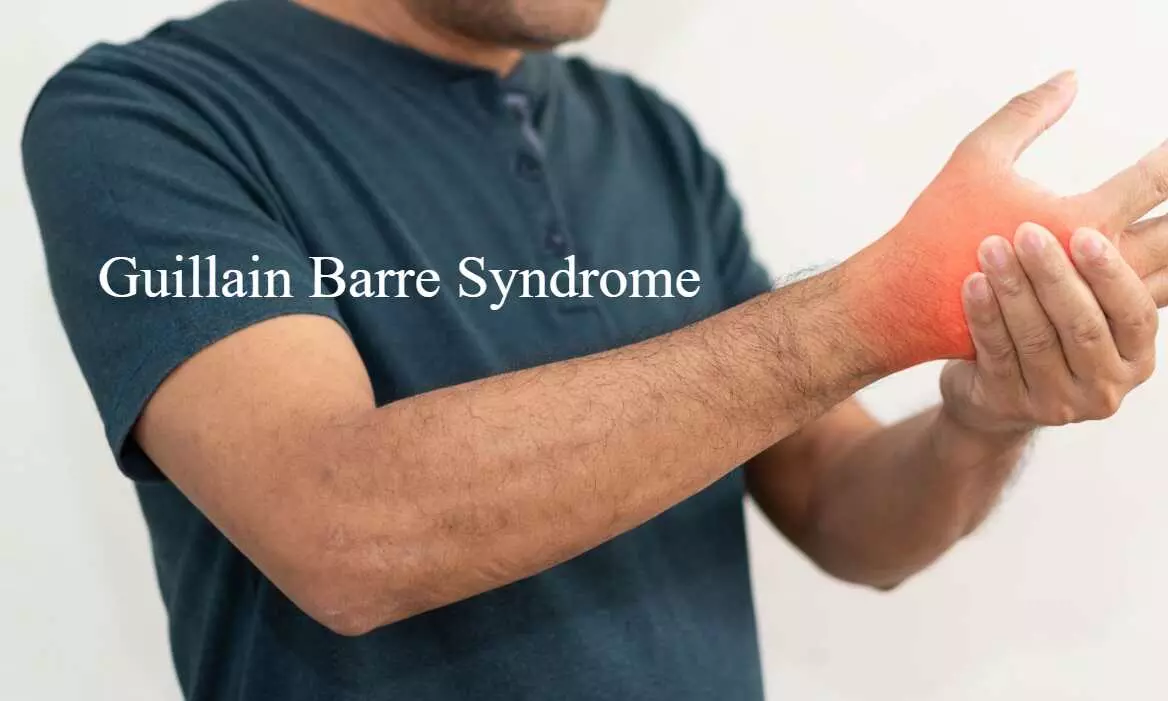Guillain Barre Syndrome Outbreak: Neurological Society of Pune issues public Advisory

Pune: Following the Guillain-Barre Syndrome (GBS) outbreak in Pune, the Neurological Society of Pune has issued a public advisory. The advisory provides crucial information on how Campylobacter infection can lead to GBS, the symptoms of Campylobacter infection, and recommended steps for managing it.
A recent outbreak of
‘Guillain-Barré Syndrome (GBS)’ has been identified in the Sinhagad Road area
of Pune. Health authorities suspect a link to ‘Campylobacter’ infection, often transmitted through contaminated food or water. Pune has reported 111 cases of GBS so far.
Talking to Medical
Dialogues, Dr Rahul Kulkarni, President of the Neurological Society of Pune stated,
“There is no reason to panic yet. We are well aware of the disease and the ways
to handle it.” Talking about the symptoms
he stated, “Most of the patients detected with GBS within the last few weeks
have complained of abdominal pain and have symptoms like vomiting, and loose motion
at least one to two weeks before the onset of this neurological problem. They might have some kind of infection from which it could have triggered.
The infection can be abdominal, where they have gastrointestinal symptoms, respiratory, or when they get cough and cold.”
He also suggested some methods
of precaution for the public including boiling the water properly before
drinking it or using properly filtered water, cleaning the vegetables before
cooking, washing hands properly before touching food, and avoiding eating food that
is prepared at unhygienic places.
An official communique from the Neurological Society of Pune shared the following information about
GBS:
What Is GBS?
GBS is a rare but
treatable neurological condition where the immune system attacks the nerves,
leading to weakness in the upper and lower limbs, neck, face, and eyes, tingling
or numbness, and difficulty walking, swallowing, or breathing in severe cases. The
illness often starts suddenly and can progress over 4 weeks. Some patients may
experience rapid worsening, while others may progress more slowly. Severe cases
might require ICU admission and ventilatory support. Treatments include injections
of IVIg or plasma exchange (similar to dialysis).
How Does
Campylobacter Cause GBS?
‘Campylobacter Jejuni’
infection can occur after consuming contaminated food or water. The infection
may lead to diarrhoea and abdominal cramps. In some individuals, an immune
response to the bacteria mistakenly targets nerves, causing GBS within 1 to 3
weeks. Other known triggers are infections like other viruses including dengue,
chikungunya, or bacteria which can cause abnormal immune reactions against nerves.
Symptoms of
Campylobacter Infection:
Diarrhea (sometimes
bloody), Abdominal pain, Fever, Nausea, or vomiting.


